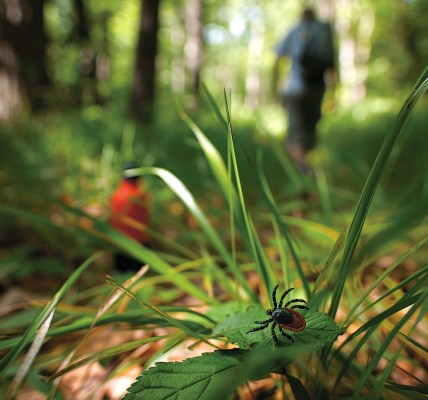Chronic Wasting Disease (CWD) has made its presence known in Kerr County, Texas, marking a significant concern for local wildlife management. The Texas Parks and Wildlife Department (TPWD) confirmed the first case of CWD at a deer farm in the county, following routine postmortem testing that revealed a positive result in a three-year-old white-tailed doe. This alarming discovery, which has been validated by the National Veterinary Services Laboratory (NVSL) in Ames, Iowa, highlights the ongoing challenges posed by this fatal prion disease.
The specific location of the affected deer farm has not been disclosed, but the implications of this finding are far-reaching. In December 2023, a prior incident at the Kerr Wildlife Management Area deer-research facility led to the euthanasia of all deer in the herd after a 14-month-old white-tailed buck tested positive for CWD. Despite this drastic measure, subsequent testing in January 2024 returned negative results, indicating that the culling was a precautionary response to a serious threat.
Since its first detection in Texas in 2012, CWD has been a growing concern for both captive and wild cervids across the state. The initial case was identified in a wild mule deer located in the Hueco Mountains, near the Texas-New Mexico border. Since then, the disease has spread to various species, including white-tailed deer, mule deer, red deer, and elk, according to the TPWD.
CWD is a neurologic disease caused by misfolded proteins known as prions. These prions are particularly resilient, capable of persisting in the environment for extended periods. The disease is characterized by its transmissibility, spreading from animal to animal as well as through environmental contamination. Although there is no evidence to suggest that CWD can infect humans, health officials advise against consuming meat from infected animals and recommend exercising caution when field-dressing or butchering cervids.
In related public health news, a recent report has shed light on a meningococcal disease outbreak that has disproportionately affected Black adults in Virginia. The outbreak, which occurred primarily in the Eastern Health Planning Region from 2022 to 2024, has raised significant alarm as nearly 80% of the cases were reported among Black residents. Furthermore, 63.9% of those affected fell within the 30 to 60 age demographic, a group not typically considered at high risk for invasive meningococcal disease (IMD).
Historically, the Eastern Health Planning Region averaged only one case of IMD annually from 2012 to 2022. However, a surge in cases was observed in July and August 2022, when four patients were identified with infections caused by the N. meningitidis serogroup Y. The investigation into these cases did not reveal any common exposures or epidemiological linkages, leaving health officials with unanswered questions regarding the outbreak’s origins and transmission.
As health authorities continue to monitor both the CWD situation in Texas and the meningococcal disease outbreak in Virginia, the public is urged to remain vigilant. Awareness and education about these diseases are critical in mitigating their spread and protecting both wildlife and community health.





